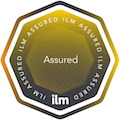Who Should Attend
Anyone who wants to know how to achieve greater productivity from meetings.
Overview
How long is it since you came out of a meeting saying, ‘That was great, I’m really looking forward to the next one!’? That may sound extreme but perhaps you get the point. The vast majority of meetings are regarded as being a waste of time and that’s the problem. There is an opportunity cost to spending time; time spent in a meeting can’t also be used for something else. If you look at every meeting as an investment of talent and organisational time, why is it that so very few meetings deliver the value of outcome that the investment demands? Running Productive Meetings focuses on the disciplines, the skills and the techniques involved in setting up, running and participating in meetings in order to ensure they deliver results that reflect the value of the participants’ time. Very soon, people will look forward to meetings because their presence actually counts.
Outcomes
Participants will know how to manage, structure and participate in meetings more effectively. They will:
- Understand the different types of meetings, identify possible pitfalls and know how to avoid them.
- Take account of the different roles and responsibilities of individuals, including those of key participants.
- Use time more effectively in preparatory tasks, in meetings and between meetings.
- Use verbal, non-verbal and visual communication more skilfully.
- Follow-up on participants’ assigned actions in between meetings to maintain focus and momentum.
- Ensure that the right people attend so as to make progress on the Agenda rather than simply talk about it.
Content
Our trainer will cover the following topics in useful depth:
- Compiling and publishing the Agenda.
- Making sure the right people attend.
- Ensuring participants are aware of any pre-meeting work they are expected to do and why.
- Making and circulating a record of the meeting.
- Three vital meeting disciplines: courtesy, control and communication.
- Using meeting time productively.
- Troubleshooting.
- The next meeting is only as good as what happens in between. The importance of maintaining the focus on action and momentum.
Pre-Course Work
None
Information
What past participants say about the training:
‘I found it very interesting. Should help to make my meetings shorter.’
‘A very refreshing and down to earth approach.’
‘I now know how to plan meetings better and this is going to save both my time and theirs. That’s a result!’
The programme is participative and includes the use of real examples as learning tools. Participants will receive a full set of Course Notes to support the learning.
DURATION: 1 Day



